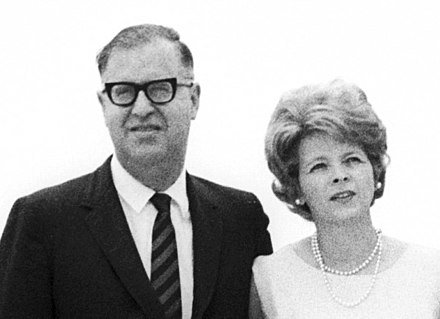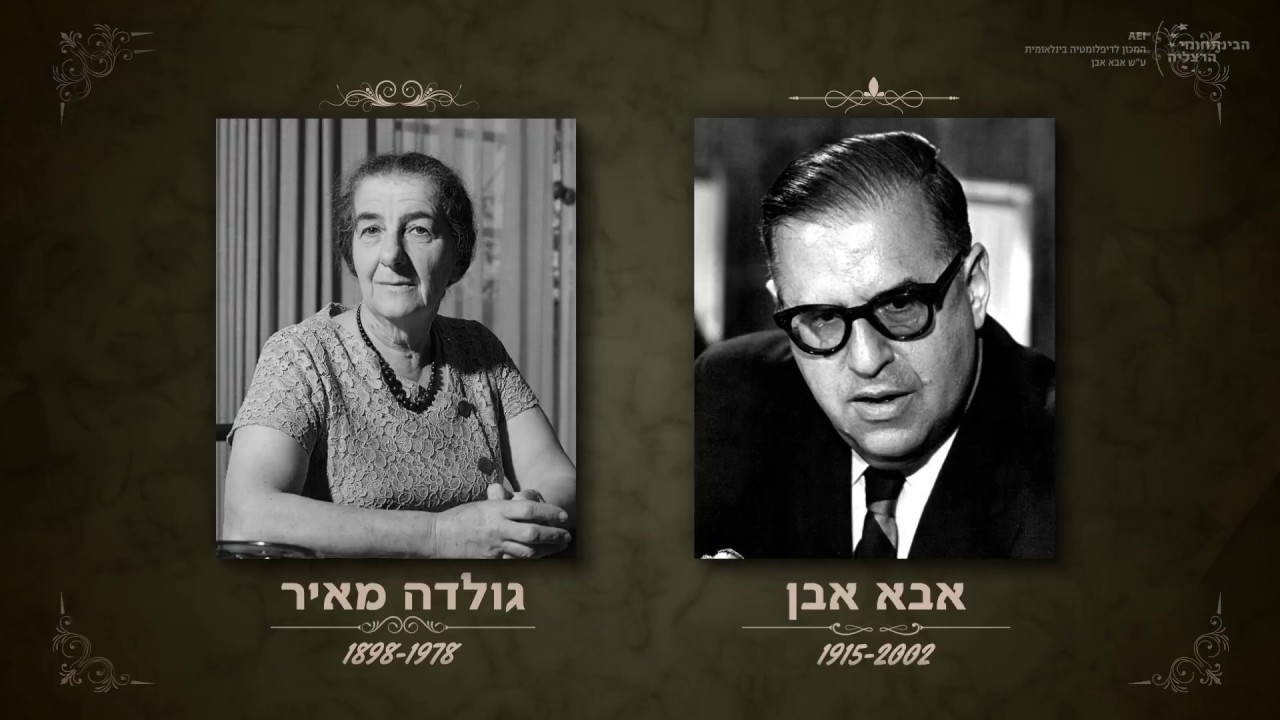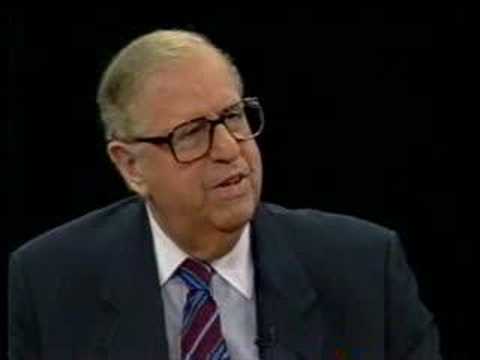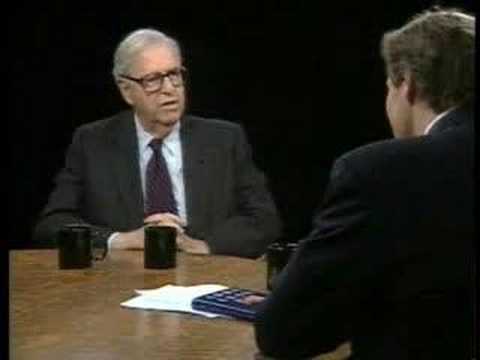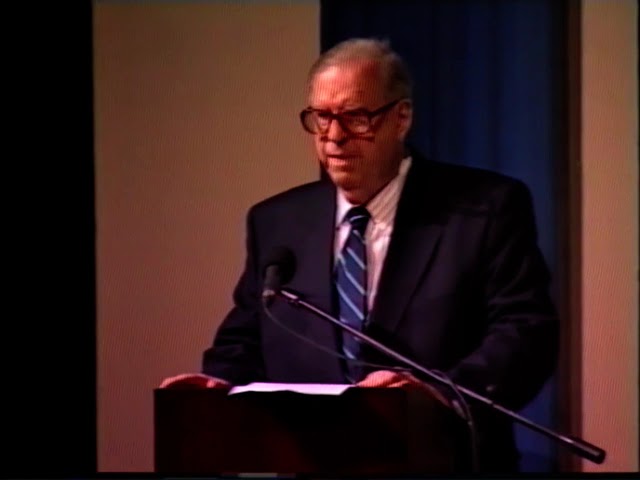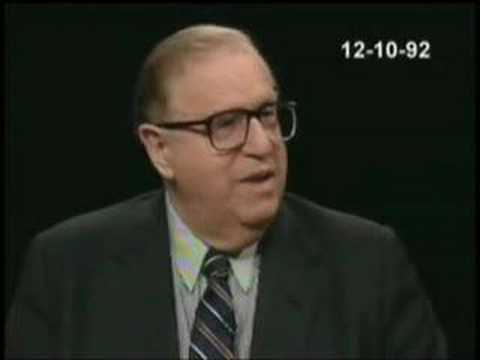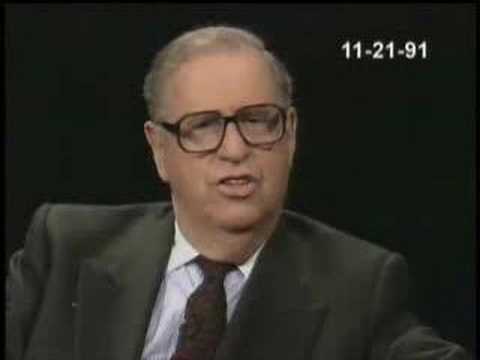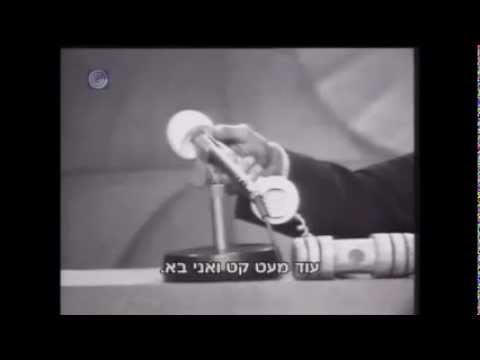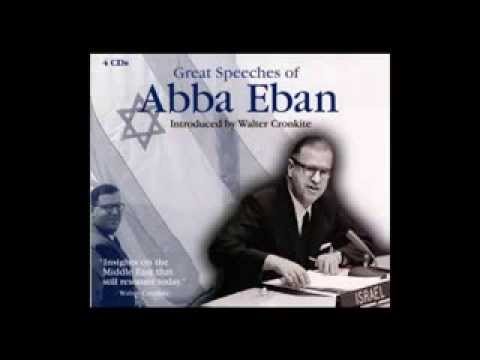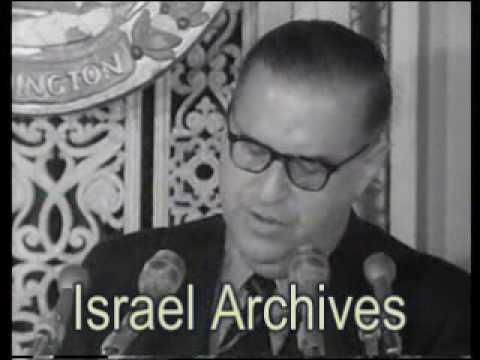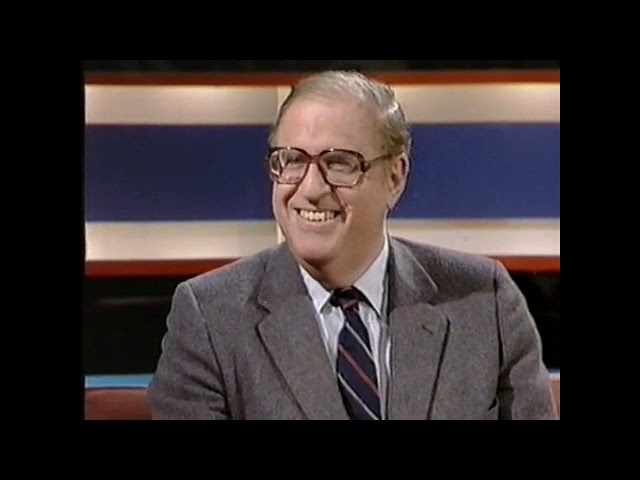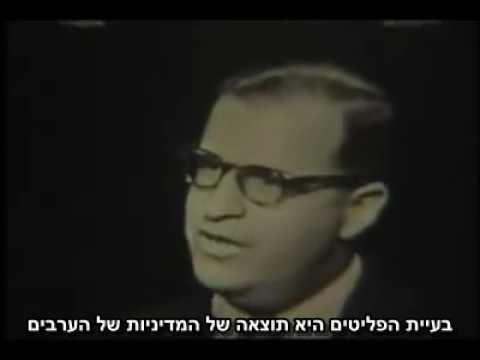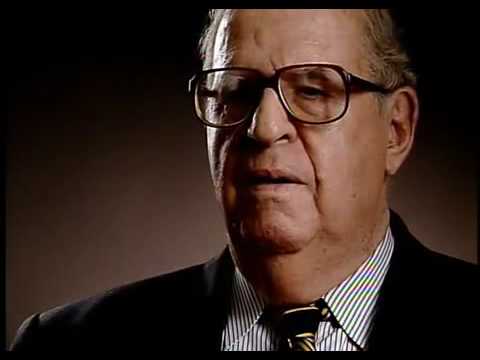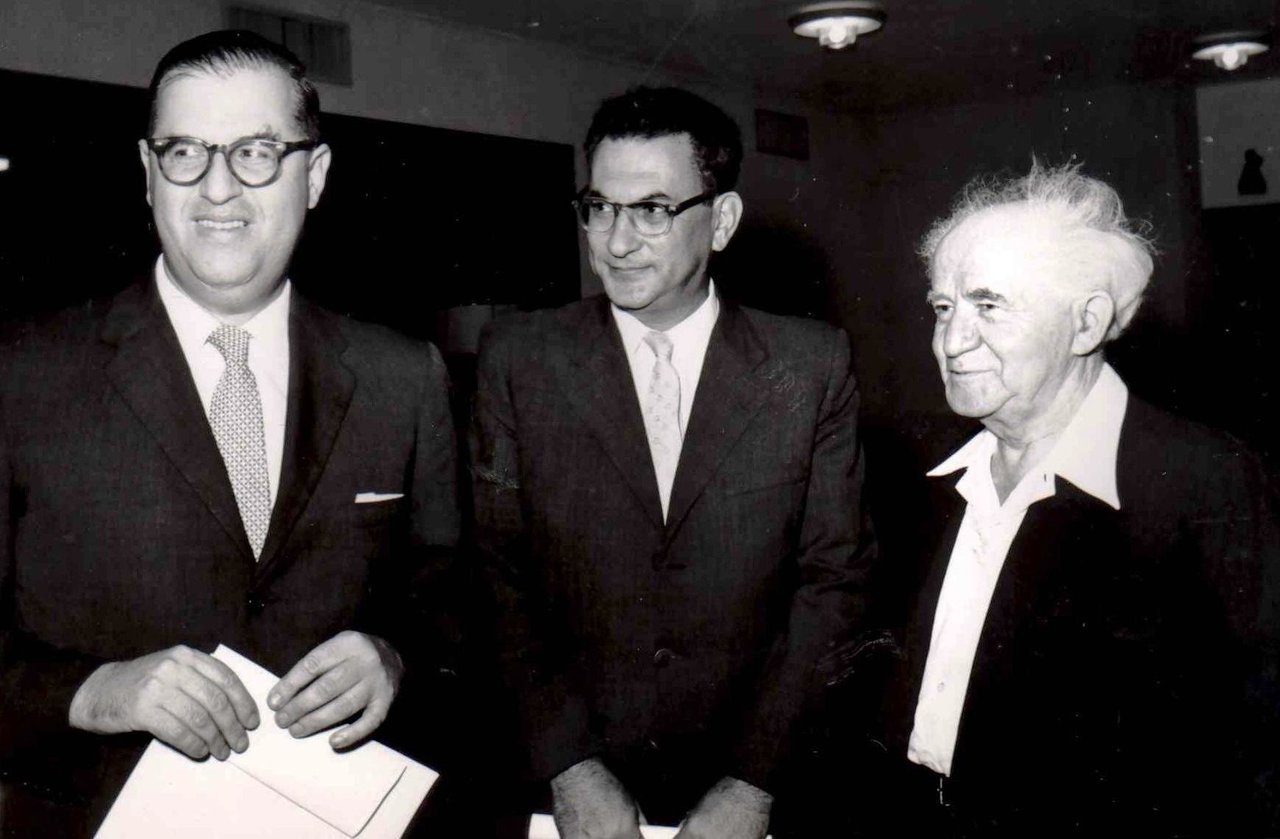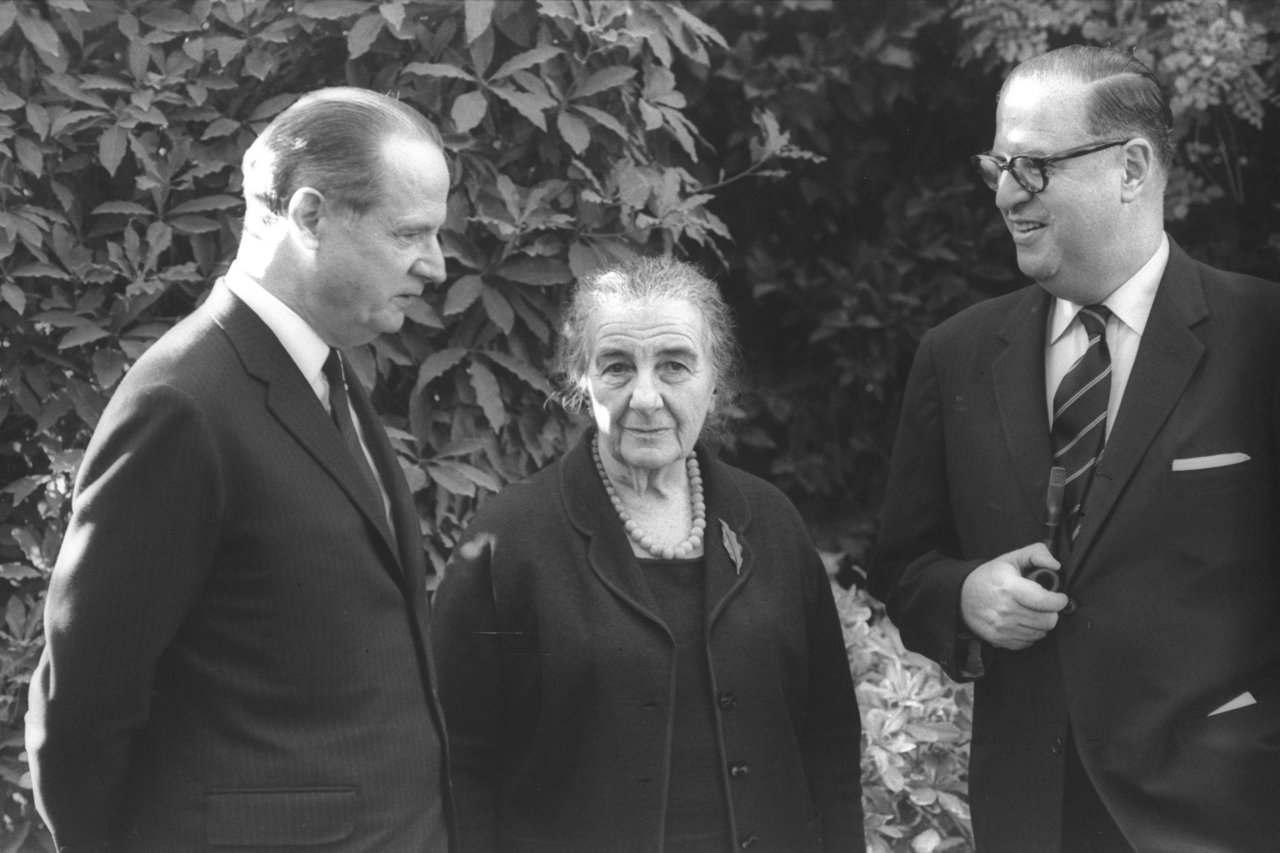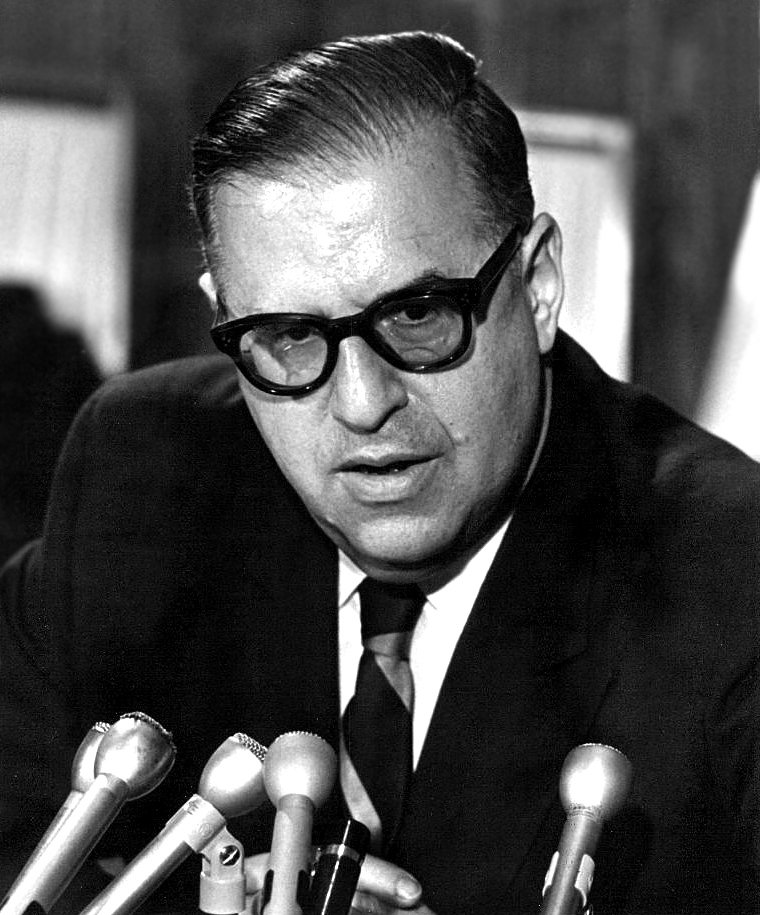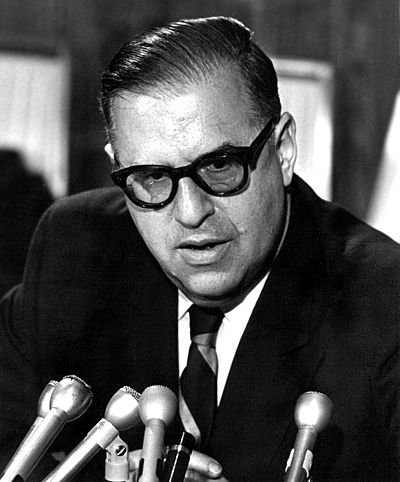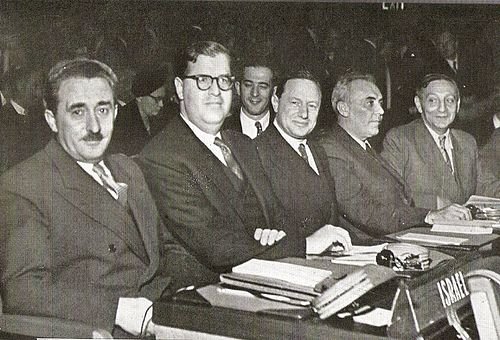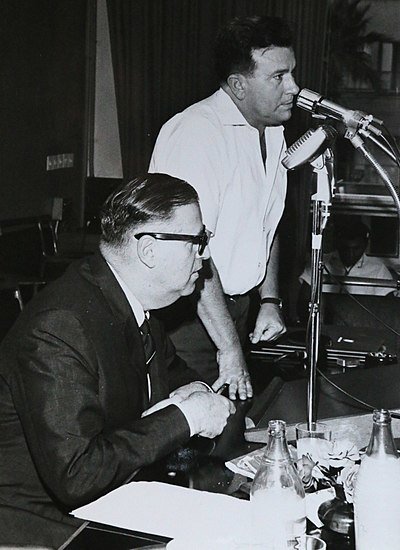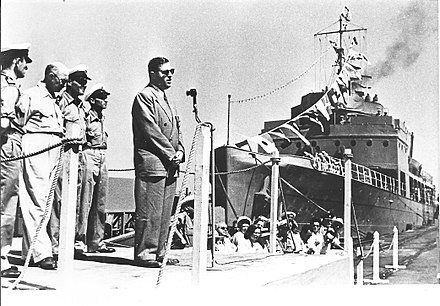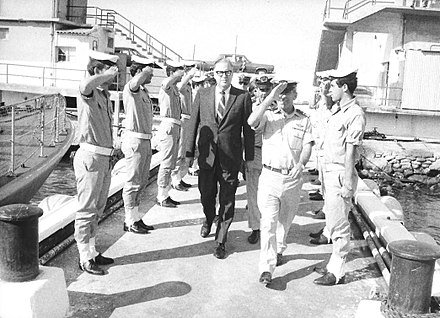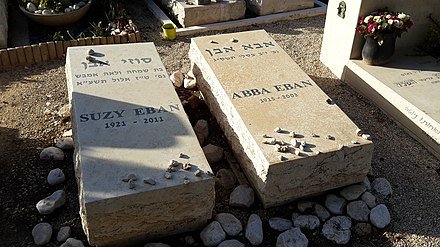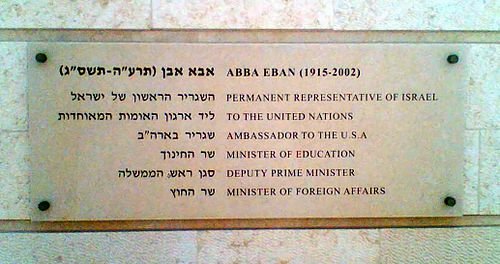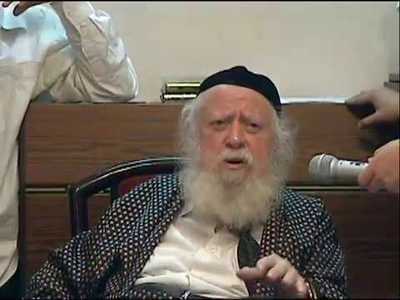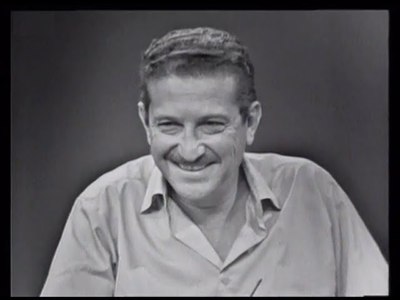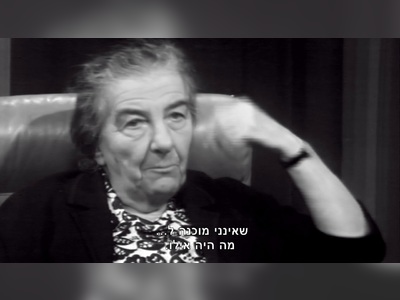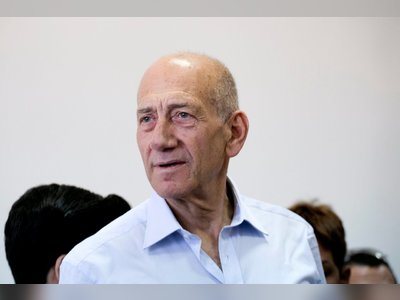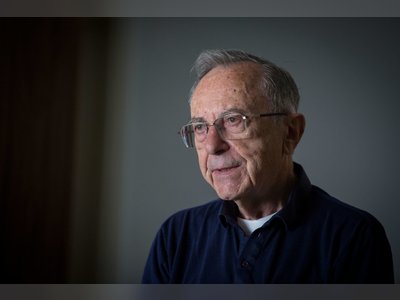Aba Solomon Eban
Was an Israeli diplomat and statesman of significant stature. He held various prominent positions within the Israeli government, including Deputy Prime Minister, Minister of Foreign Affairs, Minister of Education, and served as a Member of the Knesset representing the Israeli Labor Party. Eban was also appointed as Israel's Ambassador to the United Nations and the United States.
Known for his exceptional eloquence and exceptional diplomatic skills, Aba Eban earned the title of "Israel's Number One Diplomat." In 1960, he became the first Israeli to be elected to the American Academy of Arts and Sciences.
Born as Aubrey Solomon on February 2, 1915, in Cape Town, South Africa, to Jewish parents of Lithuanian descent who had relocated from England. In 1920, the family returned to London. After his father, Meir Solomon, passed away, his mother remarried to Dr. Yitzhak Eban. Aba adopted his stepfather's surname and became known as Aubrey Eban.
He was raised with strong Jewish and Zionist values. His mother served as the secretary of Chaim Weizmann, the President of the World Zionist Organization and a prominent spokesperson for the Zionist movement.
Eban pursued his studies at the University of Cambridge, specializing in Semitic languages, including Hebrew and Arabic, as well as Persian. He also served as a research fellow at the university. Among his academic pursuits, he researched the influence of the Arabic language on medieval Hebrew literature and delivered lectures on the Golden Age of Hebrew literature in Spain.
During his studies, he held leadership roles, including the presidency of the Student Union and co-founded the Labor Zionist youth movement within the Student Union. He was also an active member of FZY, the Zionist youth movement in Britain, and served as the official newsletter editor for the movement, known as "Young Zionist."
During World War II, Eban served as an intelligence officer in the British Army, initially in Cairo (where he met his future wife, Suzy) and later in Jerusalem, where he settled after the war. Among his various roles, he acted as a liaison officer between British intelligence and the Zionist leadership in Palestine and was involved in the administration of the School of Oriental Studies, where he also taught Arabic.
He was discharged from the British Army with the rank of Major, equivalent to a Lieutenant Colonel in the IDF. After the war, upon leaving the British military, he immigrated to Israel in 1946 and joined the political wing of the Jewish Agency. He served as the liaison officer of the Jewish Agency to the United Nations Special Committee on Palestine (UNSCOP).
Eban played a pivotal role alongside David Ben-Gurion and Chaim Weizmann in the diplomatic and political efforts leading up to the approval of the UN Partition Plan in November 1947. After the adoption of the partition plan and the establishment of the State of Israel, Eban continued to work in Washington, D.C., and New York to ensure the implementation of the decision and to counter efforts to delay its execution.
His diplomatic skills, combined with his eloquent English, greatly influenced the members of the United Nations Special Committee on Palestine. In May 1959, he obtained Israeli citizenship after it was discovered that he only held an Israeli diplomatic passport and his name was not on the voter registry.
In the 1950s, Eban was appointed as Israel's Ambassador to the United States, while also serving as Israel's representative at the United Nations. During his tenure, he made efforts to persuade Albert Einstein to become the President of Israel.
In 1952, he was appointed as Deputy President of the United Nations General Assembly.
In 1955, Eban was supposed to represent Israel at the Bandung Conference, but Indonesian President Sukarno, initially considering inviting an Israeli representative, withdrew the invitation due to pressure from Arab countries. Israel did not participate in the conference, which became a platform for anti-Israel rhetoric.
During his tenure at the United Nations and in Washington, D.C., Eban shaped Israel's diplomatic activity and its public relations. It was during this period that the first significant economic aid from the United States to Israel was secured, the Bonds for Israel campaign was established, and the American Israel Public Affairs Committee (AIPAC) was founded, solidifying the influence of the Jewish lobby in the United States. In May 1959, he received Israeli citizenship after it was revealed that he only had an Israeli diplomatic passport, and his name was not in the voter registry.
In the 1959 Israeli elections, Eban was elected to the Knesset as a member of the Mapai party (the predecessor of the Labor Party) and was appointed as a minister without portfolio in Prime Minister David Ben-Gurion's government.
From 1960 to 1963, he served as Israel's Minister of Education in Ben-Gurion's government, and from 1963 to 1966, he was Deputy Prime Minister in the government of Levi Eshkol, without a specific portfolio. Additionally, from 1958 to 1966, Eban served as the President of the Weizmann Institute of Science.
Starting in 1966, Eban served as Israel's Minister of Foreign Affairs in the governments of Eshkol and Golda Meir, continuing in this role until 1974.
In the eyes of the Israeli public, Eban became a kind of eternal Foreign Minister. During his tenure as Foreign Minister, he was at the center of diplomatic efforts leading up to the Six-Day War, and he met with French President Charles de Gaulle, who initially spoke to him with a mix of arrogance and threats, demanding that Israel refrain from any military action. Ultimately, after the war, France imposed an arms embargo on Israel.
Following the Six-Day War, Eban played a crucial role in shaping UN Security Council Resolution 242, which emphasized the principle of "land for peace." This resolution would become a fundamental component of the peace process between Israel and Arab states over the years.
After the Yom Kippur War, Eban represented Israel in shaping UN Security Council Resolution 338. Subsequently, he led the Israeli delegation to the Geneva Conference, the first peace conference aimed at resolving the Israeli-Arab conflict.
Eban continued to serve as Minister of Foreign Affairs in the government formed in March 1974 after the Yom Kippur War. However, Prime Minister Golda Meir resigned just a month after the government was formed due to growing public pressure.
Concerned that Shimon Peres, a representative of the Rafi party, would win the party's leadership election, Eban offered his candidacy to be the leader of the Labor Party, as a seasoned figure, to compete with Peres. However, Eban's proposal was declined by Yigal Allon, who believed Eban wouldn't succeed and that it would be better to find a candidate to block Peres.
Eban was disappointed by this, as he believed it was Allon's responsibility to offer him the position. Furthermore, he was angered when he discovered that Allon's candidate against Peres was Yitzhak Rabin, with whom Eban had a strained relationship since his days as an ambassador to the United States.
Eban supported Peres in the primary elections for the Labor Party leadership, which Peres eventually won. Afterward, he declined to serve as Minister of Information in the new government and was replaced by Rabin. Following the 1984 elections, Eban served as the temporary Speaker of the Knesset for five weeks. During this time, he led the Knesset with exceptional humor and rare wit.
From 1984 to 1988, during the 11th Knesset, Eban served as the Chairman of the Knesset Foreign Affairs and Defense Committee, a role he preferred over being a minister in the Likud government.
Eban advocated for territorial compromise with the Palestinians and famously said, "The Palestinians never miss an opportunity to miss an opportunity." In an interview with Der Spiegel in 1969, he stated, "The map of June, for us, is tantamount to danger and insecurity. I am not exaggerating when I say that there is something Auschwitz-like in the memory of that map." However, following the outbreak of the First Intifada in 1988, he expressed support for a two-state solution, as he believed that a majority of Jews living in Israel and the division of land would ensure such a majority in the future.
In the primary elections for the Israeli Labor Party's list for the 12th Knesset held in 1988, Eban was not selected for a high-ranking position on the list (the first ten or twenty), and he preferred to retire from the race. He was appointed as the Chairman of the Board of Governors of the Weizmann Institute and served in this role for two years. In his later years, he withdrew from political life and devoted his time to writing, teaching, and giving lectures.
- אבא אבן – ויקיפדיהhe.wikipedia.org
